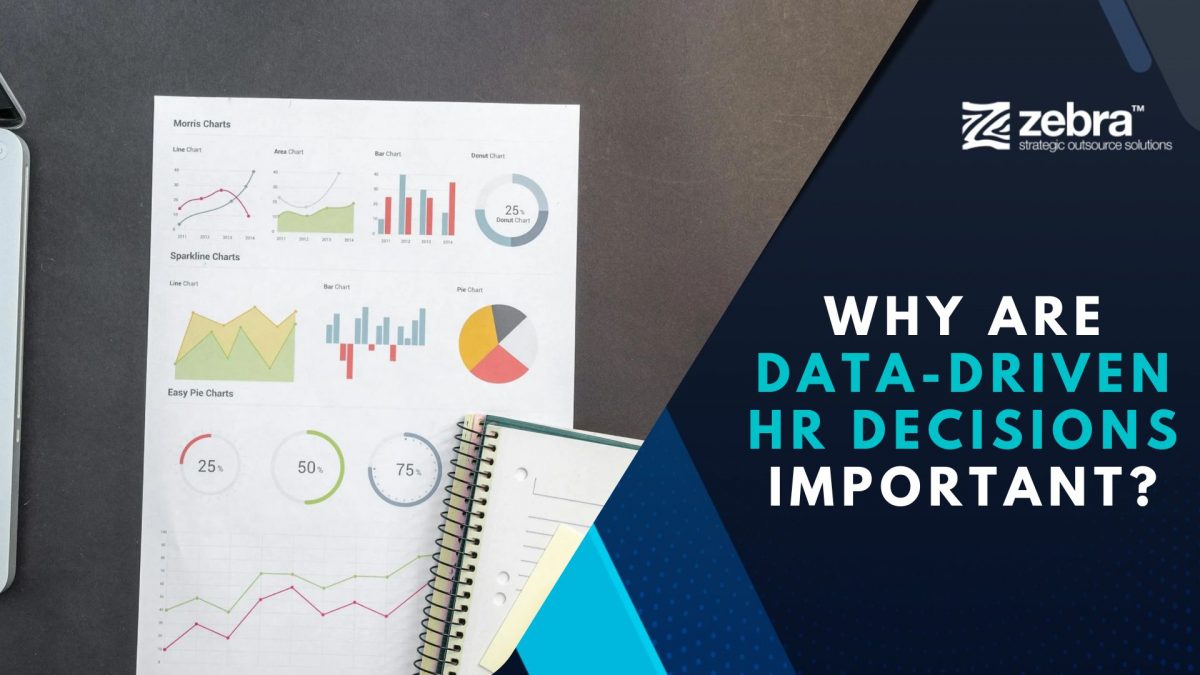
In today's competitive business environment, organizations are increasingly realizing the strategic value of data-driven decision-making. This shift is particularly crucial in Human Resources (HR), where the effective management of talent directly impacts organizational success. Data-driven HR leverages analytics to transform HR from a reactive function to a strategic business partner, enabling informed, objective decisions that drive performance, engagement, and overall organizational health.
What is Data-Driven HR?
Data-driven HR is the practice of using data and analytics to inform and guide all HR-related decisions, from hiring and retention strategies to compensation and more. It moves beyond intuition and gut feeling, relying on objective evidence to make informed choices. This approach involves:
- Collecting and Centralizing HR Data
Gathering data from various sources like performance reviews, employee surveys, recruitment systems, payroll records, and learning management systems. - Analyzing and Interpreting Data
Using statistical tools and techniques to identify patterns, trends, and insights within the data. - Implementing Data-Driven Interventions
Using the insights gained from data analysis to implement targeted strategies and interventions to address specific challenges and improve HR processes. - Monitoring and Evaluating Results
Continuously tracking the impact of data-driven interventions to measure their effectiveness and refine future strategies.

The Benefits of Data-Driven HR
Adopting a data-driven approach to HR decision making offers numerous benefits, including:
- Improved Decision Making
- Objective Evidence: Data provides a foundation for making more accurate and informed decisions. It helps identify trends, patterns, and correlations that may not be apparent through subjective observation alone.
- Reduced Bias: Data-driven decision-making helps mitigate unconscious biases that can creep into HR processes, leading to fairer and more equitable outcomes.
- Targeted Interventions: Data allows HR leaders to identify specific areas for improvement and implement targeted interventions to address challenges, optimize HR processes, and drive positive change.
- Enhanced Talent Management
- Deeper Workforce Understanding: Data analysis provides a comprehensive view of the workforce, allowing HR to identify high-performing employees, potential future leaders, and areas for skills development.
- Effective Talent Management Strategies: Data-driven insights enable HR to develop more effective talent management strategies, such as targeted training and development programs, personalized career paths, and succession planning.
- Improved Retention: By understanding factors that contribute to employee satisfaction and engagement, HR can implement strategies to improve retention and reduce turnover.
- Increased Efficiency
- Streamlined Processes: Data-driven HR can automate tasks, streamline processes, and optimize resource allocation, leading to increased efficiency and productivity.
- Reduced Costs: By identifying areas of inefficiency and implementing targeted solutions, organizations can reduce costs associated with recruitment, training, and employee turnover.
- Improved Time Management: Data-driven insights help HR prioritize tasks and allocate resources effectively, improving time management and overall productivity.
- Improved Employee Experience
- Personalized Development: Data analysis allows HR to identify individual employee needs and create personalized training and development plans, enhancing employee growth and satisfaction.
- Flexible Work Arrangements: Data can reveal employee preferences for work arrangements, enabling HR to offer flexible options that improve work-life balance and boost employee morale.
- Targeted Wellness Initiatives: By analyzing data on employee well-being, HR can implement targeted wellness initiatives to improve employee health and reduce stress.
- Strategic Alignment
- Business Goals Alignment: Data-driven HR allows organizations to align their HR strategies with overall business goals. By analyzing HR data in the context of key business metrics, HR can identify how HR initiatives contribute to organizational performance.
- Resource Optimization: Data-driven insights enable HR leaders to prioritize and allocate resources more effectively, ensuring that HR strategies are aligned with broader business objectives.
- Data-Driven Performance Measurement: HR can use data to measure the effectiveness of HR initiatives and demonstrate their impact on business outcomes, strengthening the strategic role of HR within the organization.

Key HR Functions Where Data-Driven Decision Making is Essential
Data-driven decision making is essential across all HR functions, including:
- Recruitment and Talent Acquisition
- Predictive analytics to forecast hiring needs based on historical data, ensuring proactive staffing.
- Data-driven candidate assessment to identify the best fit for the role and organizational culture.
- Analyzing recruitment channel effectiveness to optimize resource allocation and reach the right talent pool.
- Employee Development and Training
- Identifying skills gaps and developing targeted training programs to enhance employee capabilities.
- Measuring the effectiveness of training programs to ensure they deliver tangible results.
- Personalizing training content and delivery methods based on individual employee needs and learning styles.
- Performance Management
- Using data to set SMART goals, track progress, and provide constructive feedback to employees.
- Identifying high-performing employees and developing talent for leadership roles.
- Analyzing performance data to identify areas for improvement and implement targeted interventions.
- Compensation and Benefits
- Using salary surveys and market data to develop competitive compensation packages.
- Analyzing employee benefits utilization to optimize program design and cost-effectiveness.
- Developing personalized benefits packages that meet the needs of a diverse workforce.
- Employee Relations
- Analyzing employee engagement surveys to identify areas for improvement in workplace culture and employee satisfaction.
- Using data to identify and address potential issues before they escalate into conflicts.
- Measuring the impact of employee relations initiatives on key metrics like retention and productivity.

The Role of HR Data Analysts
HR data analysts play a critical role in helping organizations leverage data for HR decision making. They have the technical skills and knowledge to:
- Extract meaningful insights from HR data.
- Develop data-driven reports and dashboards.
- Communicate insights to HR leaders and managers in a clear and concise way.
- Collaborate with HR professionals to implement data-driven strategies.
The Future of Data-Driven HR
The future of HR is increasingly data-driven, with the rise of advanced technologies like artificial intelligence (AI) and machine learning (ML) further enhancing the capabilities of data analysis. These technologies can:
- Automate tasks: Free up HR professionals to focus on more strategic initiatives.
- Provide predictive insights: Anticipate future trends and challenges in the workforce.
- Personalize employee experiences: Tailor development plans, benefits, and work arrangements to individual needs.
Conclusion
Data-driven HR is not just a trend; it's a necessity for organizations seeking to thrive in today's competitive business environment. By embracing data and analytics, HR can transform from a reactive function to a strategic business partner, driving positive change and contributing to overall organizational success. Organizations that leverage data-driven insights will be better equipped to attract and retain top talent, improve employee engagement, and achieve their business goals.
How Zebra Can Help?
Zebra HR platforms empower data-driven HR decisions by centralizing employee data and providing real-time insights. This allows HR professionals to analyze trends, identify patterns, and make informed decisions about recruitment, training, performance management, and more. By leveraging data, organizations can optimize talent acquisition, improve employee engagement, and ultimately, drive better business outcomes.





